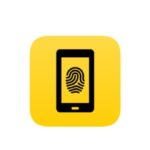
Mobile biometrics could play a high-profile role in the widening investigation into former President Trump’s efforts to overturn the results of the 2020 election. John Eastman, a lawyer who allegedly lobbied for changes of electors in important swing states, had his phone seized by federal authorities last week, and is now claiming that he was forced to biometrically unlock the device for them.
Eastman, the founding director of the Center for Constitutional Jurisprudence, has been portrayed as an important actor in the broader effort to change the result of the 2020 presidential election by the U.S. House of Representatives Select Committee to Investigate the January 6th Attack on the U.S. Capitol. The committee has used Eastman’s emails as evidence to illustrate that he had lobbied Vice President Mike Pence and President Trump to replace multiple electors that had voted for Biden with new ones who would vote for Trump, despite the electoral outcomes of the districts they represented.
Eastman was confronted by FBI agents last week as he was leaving a restaurant with his wife. The agents, acting on behalf of the U.S. Justice Department’s Office of the Inspector General, seized his iPhone and evidently were able to gain access to it through its biometric authentication system. It is not clear what model iPhone was used, or whether it was unlocked using fingerprint or face-based authentication.
A Disputed Search and Seizure
Now, court filings from this week show that Eastman is contesting the legality of the seizure, and indeed the Inspector General’s investigation itself.

His dispute rests on two fronts. One of them revolves around the limits of the Inspector General’s jurisdiction. As The Washington Post reports, the Inspector General’s mandate is to detect and eliminate waste, abuse, and fraud within the Justice Department. Eastman says that because he was never an employee of the Justice Department, he is beyond the IG’s bailiwick. (The IG may justify its seizure of Eastman’s phone based on its connection to investigations of other Justice Department officials.)
Eastman’s other argument seems to be focused on the seizure and unlocking of the phone itself. In a filing, he claims that FBI agents refused to show him the warrant for his phone’s seizure until after it had taken place, and that he was “forced to provide biometric data” in order to unlock the device. This would seem to be a reference to either the iPhone’s Touch ID or its Face ID authentication mechanisms.
According to the Post, the FBI’s warrant explicitly states that agents may ask the subject to provide biometric data for device access, but they cannot force him to do so. Eastman’s filing does not explain exactly how he was “forced” to unlock the iPhone. In theory, it could simply have been held in front of his face in order to trigger the iPhone’s face unlock mechanism.
In the Spotlight
The device’s presence in the center of such a fraught legal dispute will further elevate the prominence of biometric technology in government investigations into January 6.
In the immediate aftermath of the Capitol riots, multiple police agencies used facial recognition technology to try to identify individuals who were caught participating on surveillance video feeds. The CEO of Clearview AI, the controversial biometrics company that has provided facial recognition tech to various law enforcement entities, said that the use of his company’s platform had skyrocketed in the week after the riots.

How all of this will affect public opinion about biometrics and privacy is an interesting question. As detailed in last week’s ID Tech column, Pew research published earlier this year showed that there was a meaningful but modest difference in attitudes between Democrats and Republicans with respect to the use of facial recognition by law enforcement; but a recent study by researchers affiliated with the Max Planck Institute for Software Systems found that Democrats’ and Republicans’ feelings about privacy and government surveillance can change quite a lot depending on which party controls the White House.
On the one hand, under the Biden administration, police agencies’ use of biometric technology to identify January 6 rioters would likely cause some consternation among some number of Republicans, while at the same helping to persuade some Democrats of the merits of biometric surveillance tech. On the other hand, biometric security should have protected Eastman from the alleged overreach of the Investigator General and the FBI, had the latter not been so heavy-handed (in Eastman’s portrayal). This perspective would pit Apple’s biometric tech in a battle against privacy infringement from the Biden-led government, potentially drawing the sympathy of Republicans.
How partisan citizens actually end up feeling about all of this will likely depend on how much time Eastman’s iPhone ends up spending in the spotlight, and what kind of media narratives take shape over the dispute. Meanwhile, the legality of actually compelling criminal suspects to biometrically unlock their smartphones remains highly ambiguous, with a smattering of cases in different jurisdictions having reached different conclusions.
Sources: The Washington Post, Albuquerque Journal
–
June 28, 2022 – by Alex Perala








Follow Us